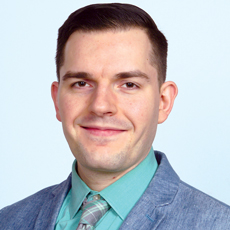
Think of all the progress that we’ve made in the fields of both journalism and nursing care the past 20 years. And yet still, one pesky issue persists between the professions. As Rodney Dangerfield put it, nurses “can’t get no respect.”
It was back in 1997 that researchers first looked at this issue and found that nurses were underrepresented in health news stories, used as sources in only about 4% of U.S. news in leading newspapers, weeklies and trade pubs like McKnight’s.
Curious to see whether the needle has moved at all since, investigators with George Washington University recently revisited the famous “Woodhull Study on Nursing and the Media.” Scouring a random sample of 365 news stories from September of last year, they found that things have seemingly gotten worse. Nurses were identified as sources in just 2% of news coverage, and only garnered mentions in 13%.
“The lack of progress in nurses’ representation in health news stories over the past 20 years was stunning,” noted Diana Mason, a registered nurse and principal investigator in the two-part study, published in the Journal of Nursing Scholarship and American Journal of Nursing.
Wanting to peel the onion back a little further, researchers also conducted one-on-one interviews with health reporters to better grasp why things haven’t changed. The overarching theme was that journalists — along with their editors and public relations folks — have an innate bias in their minds against the profession.
Often, they note, preconceptions exist in newsrooms about positions of power, with a greater emphasis placed on “rock-star doctors” as sources. Sometimes, reporters said that they had to defend their use of nurse sources to editors, and researchers believe this is doing a disservice to readers.
“Journalists and the media play an important role in educating the public about issues affecting health and healthcare, but their biases about who are credible experts is limiting the richness of their reporting,” said Jean Johnson, executive director of the Center for Health Policy and Media Engagement. “If journalists aren’t interviewing nurses, they may be missing the best part of the story.”
Circling back to McKnight’s, we don’t have any sort of innate bias against the profession. Indeed, we have magazine pages and stories dedicated to nursing issues all the time. And we duly report how the public crowns nurses as the “most respected professionals” virtually every time in famous Gallup Polls. I certainly have never had an editor tell me to seek out other interviewees that have a little more authority.
Rather, I do seem to have a little itch in the back of my head telling me that nurses are too busy working grueling shifts on the frontlines caring for residents, and why should I interrupt them from their daily duties? When we have connected, it has always made my story better, but making that initial linkage isn’t always easy.
Sooooo … if you’re a nurse who is a regular reader of McKnight’s, I’d love to hear from you. Is there an interesting new program that you are trying out in your nursing facility? An all-star caregiver whose been at this for years and has stories to share? Or have you read a story in our publication of late and felt that a nurse’s perspective was missing? Feel free to drop me a line anytime at marty.stempniak@mcknight’s.com or give me a call at (847) 559-2884 … extension 205.
Follow McKnight’s Staff Writer Marty Stempniak @MStempniak.




